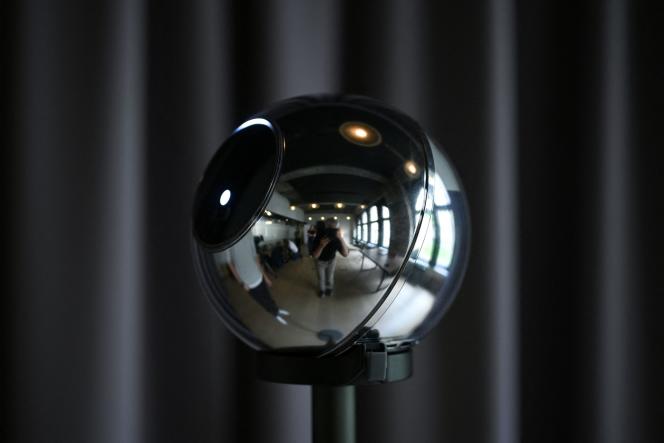The creators of Worldcoin were no doubt hoping for a more serene start. On Wednesday August 2, nine days after its worldwide release, Kenya has announced that it is suspending operations related to this new crypto-asset. A few days earlier, we learned that the French and German regulators had already launched an investigation into it.
If Worldcoin attracts so much attention, it is partly due to the notoriety of its creator, Sam Altman, who is also the founder of the company OpenAI, at the origin of the chatbot ChatGPT. But its problems come mainly from its security bias: anyone wishing to buy Worldcoin tokens must have their eye scanned using an Orb, a round and metallic device that would not look out of place in a science fiction film. According to the company, this precaution allows prove the identity of each user. But the public authorities are concerned about the dangers that the constitution of a huge database of ocular biometric data would pose to privacy.
Financial compensation
Especially since the company, which claims since the launch of its test phase more than 2 million scanned irises in more than thirty countries, is determined to increase its number of fast-paced users by offering new subscribers a financial incentive. On Tuesday, several thousand people lined up in shopping malls and Nairobi’s main conference center to undergo an iris scan and receive the equivalent of 7,000 shillings (45 euros) in virtual currency , noted a journalist from Agence France-Presse (AFP). Most people then immediately sold their tokens to pocket the cash.
In response, the Kenyan authorities therefore suspended Worldcoin’s activities in the country. In a press releasethe government explained on Wednesday that it had launched investigations relating in particular to “the lack of clarity regarding the storage and security of sensitive data” And “ the lack of appropriate supervision” of this huge database. Concerns shared by European regulators, in particular the National Commission for Computing and Liberties (CNIL) and its German counterpart. The latter confirmed to AFP that it had opened an investigation, with the assistance of the French organization.
To AFP, the Worldcoin foundation assured that the request for digital identity had been “overwhelming” in Kenya and that, as a precaution, the verification services had been “temporarily suspended”. “During the break, the team will develop a program including control measures (…) more robust and will work with local authorities to raise awareness of the privacy measures and commitments that Worldcoin is implementing, not just in Kenya, but everywhere.”she added.
“universal income”
Worldcoin’s parent company, Tools For Humanity, spent three years developing its project. Two million people registered during the test phase of the cryptoasset to obtain a digital passport called “World ID”, in sometimes rather troubled conditions: as revealed by an investigation by the MIT Technology Review, in small villages in Indonesia, the company did not necessarily inform new enrollees of the implications of collecting their biometric data and scanned the body and face in addition to the eyes. The company plans to deploy some 1,500 Orbs in different countries to allow millions of other users to register, as its website indicates.
For its co-founders, Sam Altman and Alex Blania, Worldcoin could allow, they assure, establish a reliable solution to distinguish human beings from artificial intelligence online while maintaining data privacy (…) and ultimately pave a potential path towards a universal minimum income funded by artificial intelligence (AI)”. The financing of such a Universal Basic Income (or Universal Basic Income, UBI) remains nebulous, but it is part of the responses envisaged by many Silicon Valley personalities in the face of the risk of replacing certain jobs by AI programs, or to compensate individuals whose Internet contributions are used to drive such programs.
The value of the Worldcoin token, initially $1.70, jumped up to $3.58, before falling back to $2.30 on Thursday at noon, according to the site CoinMarketCap. This cryptocurrency is currently not available in the United States, where the authorities are trying to better regulate this sector.
